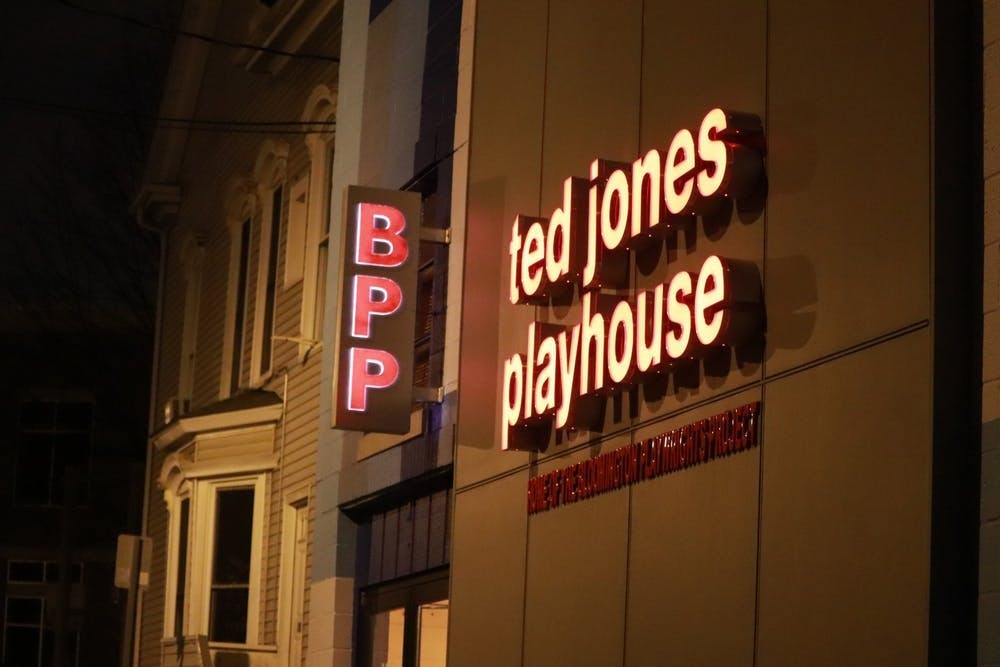Curtains have fallen, but the sound of applause is nowhere to be heard. The COVID-19 pandemic shut down theaters across the country last March, and many have yet to fully return to normal operations.
We’ve already seen some theaters re-open across the globe, but the U.S. has struggled with high COVID-19 case numbers and an emerging preference for online performances. There is a way to open theaters to the public — they just need all the support, morally and economically, they can muster.
We need to start thinking about how much our society depends on live theater. Theater companies across the country deserve more support upon their return to normal programming.
Live performance is the foundation of all entertainment mediums we ingest today. In ancient Greece, theater was highly valued and set standards for structures of storytelling and entertainment still used today. All styles and conventions of modern entertainment originated in some way from this basic form of live theater.
Yet somehow we seem to be leaving live performance behind. Instead of a night out seeing a show, people would overwhelmingly enjoy a night in at home watching the same movies on Netflix. Our entertainment, especially this past year, is overwhelmingly digital, and it’s looking like this will continue without further intervention.
Before the pandemic, big Broadway blockbusters still wielded enough strength to draw audiences to the Great White Way, and the effects of Broadway’s closure have been detrimental to theater everywhere. However, our focus needs to span beyond the commercial and economic benefits of live theatre and emphasize the societal need for live performance.
Bloomington is home to the IU theater department and many theater companies that provide the community with outstanding performances and educational opportunities. Unfortunately, these had to be re-evaluated and even canceled after the start of the COVID-19 pandemic.
Theater companies such as the Bloomington Playwrights Project, Jewish Theatre of Bloomington and Cardinal Stage have all been hit hard by the COVID-19 pandemic, shifting their focus from their usual show schedule and educational programs to developing online or socially distanced alternatives.
“That's been a huge learning curve — literally everything we've done this year, we were inventing and learning as we went,” Kate Galvin, the artistic director at Cardinal Stage, said. “So that has been really exhausting, and not resulted in the same kind of gratification that you feel when an audience leaps to its feet at the end of a live performance.”
Figuring out when the country might be in a place to revisit live theater is an incredibly stressful task for local theater companies. Galvin was clear that Cardinal is developing a plan for reopening in the fall but is not ready to announce specifics.
“We're not really ready to answer this question right now, there are too many unknowns still,” Galvin said.
But what can we do? How can we support local theaters? The first part of the answer is simple: Do your part in getting the pandemic under control. Getting the COVID-19 vaccine and continuing to socially distance will help create a safer environment for theaters to begin opening their doors.
But even after the COVID-19 pandemic is over, we need to start going to the theater more. Many local theater companies, Cardinal Stage included, rely on their audiences attending regularly.
“That's really the best thing that anyone can do — if you are able, please come back,” Galvin said. “Our hope is that by the time we come back to the stage, our patrons will be right there with us.”
Theater is unique because it’s art, a commodity that holds value in its mere existence. But without an audience, it’s not sustainable.
Once theaters re-open, we have the chance to support the arts in unprecedented ways. We need to rise to the occasion, attend productions and appreciate the art that’s made to further invest in the future of national and local theatre companies.
Theater will always live on, but not without our help.
Chris Sciortino (he/him) is a sophomore studying theater and political science. He's an NPR and musical theater fanatic, and also a proud member of the Singing Hoosiers.





